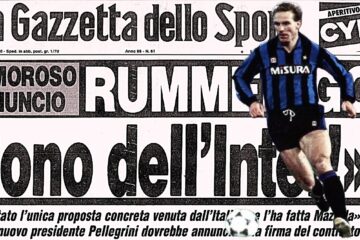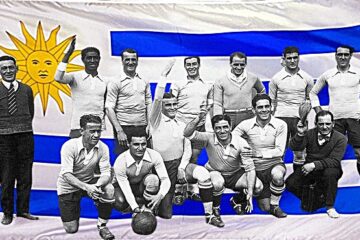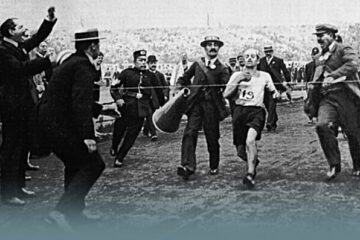History of the Men’s Basketball World Championship | 1st Part (1950-1974)!
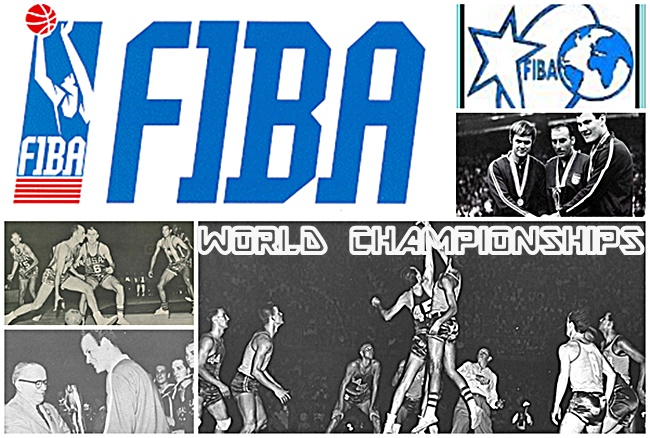
Prologue!
The history of the FIBA Basketball World Championship began in 1950, with the first edition. The championship has been held every four years since the inaugural tournament in 1950 (the 1958 tournament was postponed to 1959 and did not get back on its current schedule until the 1970 tournament was held three years after the 1967 tournament).
The tournament was conceived during the 1948 Summer Olympics when FIBA leaders, seeing how successful the Olympic basketball tournament had become, wanted to hold a Championship every four years between Olympiads.
The first tournament was held in 1950 in Argentina and was won by the hosts. The tournament was later dominated from 1963 through 1998 by Brazil, the Soviet Union (and later Russia), the United States, and Yugoslavia (and later Croatia and Serbia and Montenegro), as those four teams won every medal in that era. Since 2002, however, parity has seen new teams claim medals as basketball continues to grow throughout the world.
The tournament was restricted to European and South American professional players for the first forty years of its existence. In 1989, FIBA made the decision to allow NBA players for future tournaments. Starting in 1994, NBA players have played in each Basketball World Cup.
1. 1950 BUENOS AIRES, ARGENTINA
1. Argentina
2. United States of America
3. Chile
The FIBA Congress, which met in London in 1948 on the occasion of the XIV-th Olympic Games, decided to organize a world championship every four years between the Olympic tournaments.
Argentina was prepared to accept the teething problems and so Buenos Aires was the location of the 1st World Championship for Men from
22nd October to 3rd November 1950.
FIBA limited the number of participating teams to ten: the three best teams at the preceding Olympic Games, the two best teams from Asia, Europe and South-America, plus the organizing country which was automatically qualified.
The USA, France and Brazil, classed in that order two years previously in London, were therefore qualified along with Argentina, Chile and Peru.
Uruguay, soundly qualified by winning the South American Championship, refused to cross the Rio de la Plata for political reasons and, more precisely, in order to protest against the Argentinian Government’s refusal to grant visas to its press representatives.
Since no Asian team wanted to make the long and costly journey to Latin America, the competition was opened up to neighboring countries along the Equator and to two additional European teams, Spain and Yugoslavia.
Relegated to fifteenth place at the Olympic Games in London two years previously, Argentina, cheered on by 25,000 supporters, surpassed itself in the Luna Park Arena and took the first championship title by beating the USA (64-50).
The USA had not taken the World Championship very seriously, appearing with a corporate team from the Chevrolet factories in Denver.
Interestingly, the Argentinians were the only ones in this competition to cross the 60-point barrier.
This championship was marked by two unforgettable incidents: the first being when Egypt which beat France (31-28) as the result of an error in the refereeing. It refused to replay the game and threatened to withdraw from the competition, before France renounced its appeal.
The second occurred when Yugoslavia refused to face Franco’s Spain, a withdrawal which resulted in the Yugoslav team being suspended for nine months including team members Nebojsa Popovi , future Secretary General of the Yugoslav Olympic Committee, and Borislav Stankovi , current Secretary General of FIBA.
Most Valuable Palyer: Oscar Furlog (Argentina)
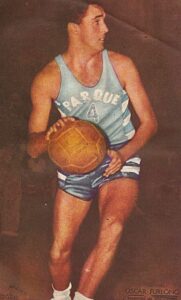
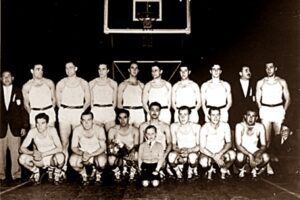
MEDALS
1. Argentina: 8.Oscar Furlong, 11.Ricardo González, 3.Pedro Bustos, 5.Leopoldo Contarbio, 4.Hugo del Vecchio, 7.Vito Liva, 14.Alberto López, 10.Rubén Menini, 13.Omar Monza, 6.Raúl Pérez Varela, 12.Juan Carlos Uder, 9.Roberto Viau (Coach: Jorge Hugo Canavesi – Casimiro González Trilla])
2. USA: 20.John Stanich, 66.Bob Fisher, 75.Bryce Heffley, 55.Thomas Jaquet, 33.Dan Kahler, 19.John Langdon, 40.Les Metzger, 44.J. L. Parks, 22.Jimmy Reese, 16.Don Slocum, 77.Blake Williams (Coach: Gordon Carpenter)
3. Chile: Rufino Bernedo, Pedro Araya, Eduardo Cordero, Mariano Fernández, Exequiel Figueroa, Juan José Gallo, Raúl López, Luis Enrique Marmentini, Juan Ostoic, Hernán Ramos, Marcos Sánchez, Víctor Mahana (Coach: Kenneth Davidson)
Top Scorer: Alvaro Salvadores (Spain) 13.8 Pts
All Tournament Team
Oscar Furlong (Argentina)
John Stanich (USA)
Rufino Bernedo (Chile)
Álvaro Salvadores (Spain)
Ricardo González (Argentina)
2 1954 RIO DE JANEIRO, BRAZIL
1. United States of America
2. Brazil
3. Philippines
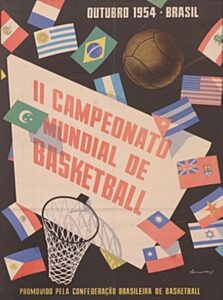
Originally scheduled to be held in Sao Paulo to celebrate the 400th anniversary of this city’s foundation, the 2nd World Championship was finally organized in Rio de Janeiro, the roof of the la Palais des Sports in Sao Paulo having been damaged by bad weather. (23 October to 5 November 1954)
Once again, the East Bloc countries declined to take part following the Brazilian authorities’ refusal to issue entry visas to the Soviets. What is more, with Egypt having withdrawn from the Championship owing to the presence of Israel, only twelve teams were present in Brazil (seven from the Americas, three from Asia and two from Europe).
The competition was held in the brand new Maracanãzinho stadium (with a capacity of 25,000), a stone’s throw from the famous Maracana football stadium capable of holding 200,000 people.
With the Preliminary Round having eliminated Paraguay, Chile, Yugoslavia and Peru, the final group brought together the USA, Brazil, the Philippines, France, Formosa, Uruguay, Canada and Israel. The latter was notably responsible for eliminating Chile, despite its position at the top of the group along with Uruguay, Brazil and the USA.
Represented by a corporate team once again, this time from Caterpillar, but with six players over two metres, the USA beating Brazil 62-41 (in the last game of the final group) carried off the title after having taught their opponents a lesson.
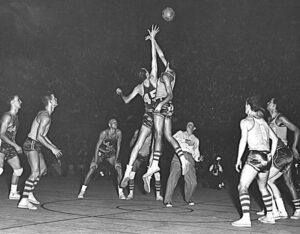
Final (Decisive Match)
VENUE: Ginásio do Maracanã (Rio de Janeiro)
DATE: 5-11-1954 (22:00 h)
ATTENDANCE: 17.000
REFEREES: Eduardo Airaldi (PER), Alberto Pedro (PAR)
Incidents: Although the maximum capacity of brand-new Ginásio do Maracanã (popularly known as “Maracanãzinho”) was 30,000 spectators, during the basketball World Championship it was reduced to 17,000 seats for safety reasons, which were fully packed for the final.
USA (coach: Warren Womble)
Joe Stratton (11); Kendall Sheets (8); Kirby Minter (2) Dick Retherford (4); Bert Born (12); Don Penwell (7); Allen Kelley (4); Eddie Solomon (14)
Brazil (coach: Togo Renan Soares “Kanela”)
Ângelo Bonfietti “Angelim” (3); Zenny de Azevedo “Algodão” (6);Wlamir Marques (6); Almir de Almeida (6); Amaury Pasos (12) Wilson Bombarda (4); Jamil Gedeão (-); Mayr Facci (4); Mário Jorge da Fonseca (-)
Philippines, Bronze medal Team: 3 Lauro Mumar (c); 4Francisco Rabat; 5Napoleon Flores; 6Mariano Tolentino;7Benjamin Francisco; 8Rafael Barretto; 9Ponciano Saldaña10 Florentino Bautista; 11Ramon Manulat; 12Bayani Amador; 13Tony Genato; 14Carlos Loyzaga Coach: Herminio Silva
Most Valuable Player: Kirby Minter (USA)
Top Scorer: Oscar Moglia (Uruguay) 168 Points
All Tournament Team:
Carlos Loyzaga – Philippines
Kirby Minter – United States
Oscar Moglia – Uruguay
Zenny de Azevedo (“Algodão”) – Brazil
Wlamir Marques – Brazil
3. 1959 SANTIAGO DE CHILE, CHILE
1. Brazil
2. United States of America
3. Chile
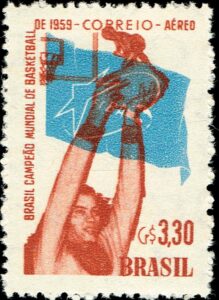
16 to 31 January 1959
For the first time ever, the USSR lined up at a World Championship, played on Santiago’s football pitch which had been converted for the occasion.
Chile being automatically qualified, twelve teams were divided into three groups which played the Qualifying Round games in Conception, Temuco and Antofagasta. There were several surprises on the cards, such as the USSR being beaten by Canada in Temuco, only qualifying on goal average behind Brazil, and even Argentina’s and Egypt’s defeats against the Chinese Formosa team
which thus won its place in the final group.
The qualification of nationalist China was to totally distort the competition because although the Soviets won all their games in this Final Round, their refusal to face Formosa led to their relegation to second-to-last place, with last place going to Bulgaria for having wanted to imitate the Soviets.
This demotion did very nicely for Brazil which, in spite of having been beaten by the USSR (71-76), took the gold medal after beating a second-rate American corporate team 81-67.
Final Decisive Match
Brazil-Chile 73-49
MEDALS:
Brazil: 3 Algodão; 4 Amaury (MVP); 5 Wlamir6 Boccardo; 7 Senra; 8 Brobró
9 Branca10 Jatyr11 Bispo; 12 Nobrega; 13 Picente; 14 Blatskauskas
Coach: Kanela
USA: 4 Baker; 5 Coshow; 6 D’Antonio; 7 Hodges; 8 Jeangerard; 9 McDonald; 10 John Miller; 11 Olsen; 12 Riley; 13 Vayda; 14 Welsh; 15 White
Coach: Bennett
Chile: Rufino Bernedo; Juan Zitko; Luis Salvadores; Rolando Etchepare; Juan Guillermo Thompson; Jose de la Fuente
Coach: Luis Velenzuela
MVP: Amaury Pasos (Brazil)
Top Scorer: Chen Tsu Li (FDR) 141 Poins
All Tournament Team:
Puerto Rico – Juan Vicéns
Brazil – Amaury Pasos (MVP)
Brazil – Wlamir Marques
Bulgaria – Atanas Atanasov
Soviet Union – Jānis Krūmiņš
4. 1963 RIO DE JANEIRO, BRAZIL
1. Brazil
2. Yugoslavia
3. Soviet Union
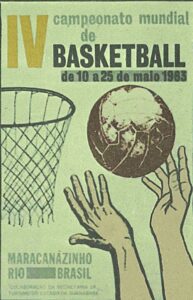
12 to 25 May 1963!
Originally scheduled to be held in Manila, but taken away from the Philippines as a result of their government’s refusal to issue players and officials from socialist countries with visas, the organization of this 4th World Championship was finally assigned to the Brazilians but not before FIBA had excluded the Philippines from the competition and fined their federation 2,000 dollars.
FIBA suspended the original host country, the Philippines, after Philippine President Diosdado Macapagal refused to allow players from Yugoslavia and other communist countries to enter the country.
For the third time in ten years, Brazil was to play host to the best basketball players in the world. Of the thirteen countries involved, eight represented the Americas and four Europe.
After the preliminary games in Belo Horizonte, Curitiba and Sao Paulo, it was in a carnival atmosphere in Rio de Janeiro that Brazil retained its title from Santiago by beating Yugoslavia, the USSR, the USA and France, classed
in that order. Amaury Pasos and Wlamir Marques, the two star players of this World Championship, were to become just as famous in Brazil as the footballers Pelé and Garrincha.
The United States, represented by an inferior team yet again, had to admit defeat against Brazil, Yugoslavia and the USSR successively.
Final-Decisive Match:
Brazil – USA 85-81
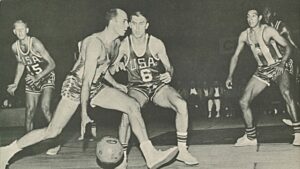
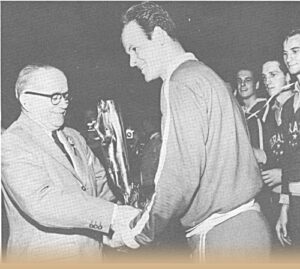
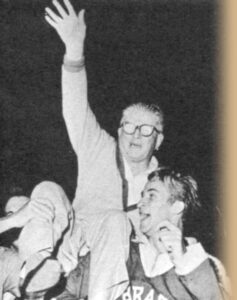
MEDALS:
Brazil: 4 Amaury; 5 Wlamir (MVP); 6 Bira; 7 Mosquito; 8 Tortelli; 9 Branca; 10 Jatyr; 11 Menon; 12 Sucar; 13 Mirshauswka; 14 Blatskauskas; 15 Fritz
Coach: Kanela
Yugosllavia: 4 Gordić; 5 Korać; 6 Rajković; 7 Kovačić; 8 Gjergja; 9 Ražnatović; 10 Daneu; 11 Petričević; 12 Eiselt; 13 Cvetković; 14 Đurić; 15 M. Nikolić
Coach: A. Nikolić
Soviet Union: 4 Hladun; 5 Khrynin; 6 Ivanov; 7 Kalniņš; 8 Korneev; 9 Lesava; 10 Minashvili; 11 Petrov; 12 Travin; 13 Ugrehelidse; 14 Volnov; 15 Zubkov
Coach: Gomelsky
MVP: Wlamir Marques (Brazil)
Top Scorer: Ricardo Duarte (Peru) 23.1 Pts
All Tournament Around:
Amaury Pasos (Brazil
Wlamir Marques – (MVP) (Brazil)
Aleksander Petrov (USSR)
Don Kojis (USA)
Maxime Dorigo (France)
5. 1967 MONTEVIDEO, URUGUAY
1. Soviet Union
2. Yugoslavia
3. Brazil
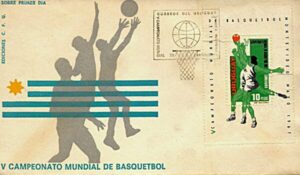
27 May to 11 June 1967.
After Argentina, Brazil and Chile, yet another South-American country, Uruguay, was assigned the organisation of this competition.
This 5th World Championship had been preceded one year earlier by an “extraordinary” world cup organized in Chile to mark the 35th anniversary of FIBA.
As for the “real” World Championship, it was played in the Sports Hall in Montevideo where electric heaters were installed to warm up the substitutes who sat freezing on the benches because it was so cold in Uruguay that May.
The USA, still not having lined up a proper national selection, was pushed back into fourth place though not before having subjected the USSR to its only defeat (58-59). But, victorious over the Yugoslavs and the Brazilians, the Soviets went and won the World Championship for the first time. They were awarded the first trophy bearing the name of James Naismith, the founder of basketball.
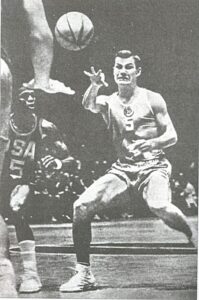
Two last Finals
Yugoslavia – Soviet Union
59-71 (26-33)
Cilindro Municipal (Montevideo), 11-06-1967. Attendance: 18.000.
Referees: Kostas Dimou (GRE), Marek Paszucha (POL).
Note: This game of the Final League stage decided the winner of the tournament.
Yugoslavia (coach: Ranko Žeravica)
Borut Bassin (2), Radivoj Korać (6), Trajko Rajković (13), Dragan Kovačić (-), Vladimir Cvetković (1), Dragoslav Ražnatović (10), Ivo Daneu (23), Krešimir Ćosić (-), Josip Đerđa (-), Ratomir Tvrdić (-), Nemanja Đurić (4), Petar Skansi (-)
Soviet Union (coach: Aleksandr Gomelskij)
Gennadij Chechuro (-), Modestas Paulauskas (6), Zurab Sakandelidze (10), Aleksandr Travin (4), Yurij Selikhov (6), Anatolij Polivoda (16), Sergej Belov (-), Priit Tomson (3), Rudolf Nesterov (-), Gennadij Vol’nov (7), Jaak Lipso (16), Vladimir Andreev (3)
__________________________
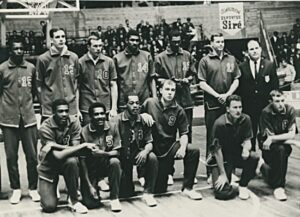
USA – Brazil 71-80 (29-40)
Cilindro Municipal (Montevideo), 11-06-1967.
Referees: David Bensusán (URU), Calvin Pacheco (PUR).
USA (coach: Hal Fischer)
Benson (7), Cunningham (2), Silliman (8), Paulk (-), Barrett (2), Clawson (-), Carrier (20), Miller (-), Tucker (7), Rhine (7), Williams (11), McKenzie (7)
Brazil (coach: Togo Renan Soares “Kanela”)
Amaury (13), Sérgio Macarrão (-), Ubiratan (15), César Sebba (-), Hélio Rubens (-), José Luís (-), Jatyr (7), Menon (24), Sucar (4), Edvar Simões (8), Emil Rached (-), Mosquito (9)
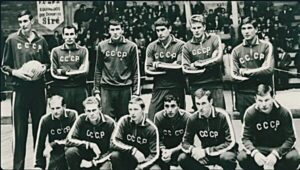
MEDALS
1st Ttitle | Soviet Union: Gennadij Chechuro , Modestas Paulauskas , Zurab Sakandelidze, Aleksandr Travin, Yurij Selikhov, Anatolij Polivoda, Sergej Belov, Priit Tomson, Rudolf Nesterov, Gennadij Vol’nov, Jaak Lipso, Vladimir Andreev
Coach: Aleksandr Gomelskij
Yugoslavia: Borut Bassin, Radivoj Korać , Trajko Rajković, Dragan Kovačić, Vladimir Cvetković, Dragoslav Ražnatović, Ivo Daneu, Krešimir Ćosić, Josip Đerđa, Ratomir Tvrdić, Nemanja Đurić, Petar Skansi
coach: Ranko Žeravica
Brazil: Amaury, Sérgio Macarrão, Ubiratan, César Sebba, Hélio Rubens, José Luís, Jatyr , Menon , Sucar, Edvar Simões, Emil Rached, Mosquito
Coach: Togo Renan Soares “Kanela”
MVP: Ivo Daneu (Yugoslavia)
Top Scorer: Bogdan Likszo (Poland) 180 Pts
All Tournament Team:
Radivoj Korać (Yugoslavia)
Ivo Daneu – (MVP) (Yugoslavia)
Mieczyslaw Lopatka (Poland)
Modestas Paulauskas (USSR)
Luiz Cláudio Menon (Brazil)
6th | 1970 LJUBLJANA, YUGOSLAVIA
1. Yugoslavia
2. Brazil
3. Soviet Union
10-23 May 1970
Following the first five championships organized in South America, the World Championship for Men moved further afield to Europe where the organization was assigned to Yugoslavia.
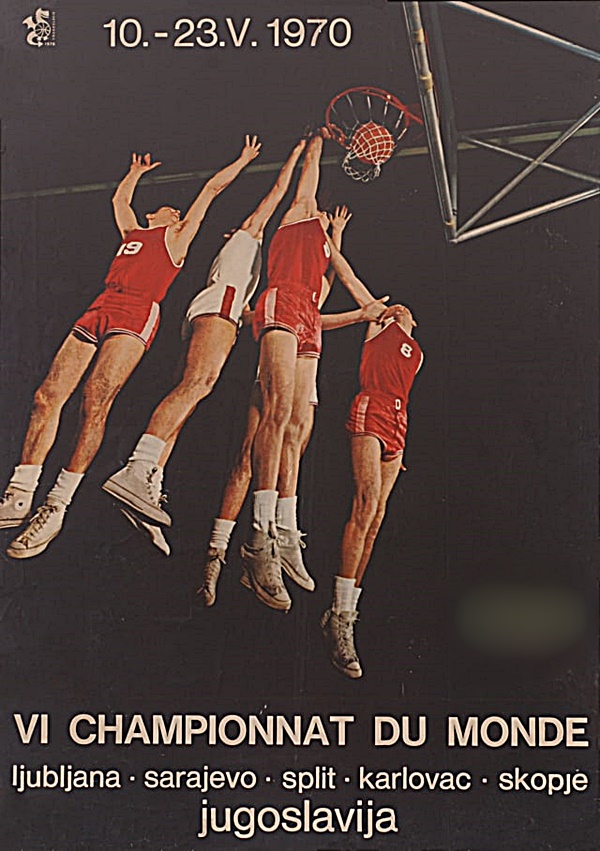
With six teams the Americas had the most representatives (Brazil, USA, Uruguay, Cuba, Panama and Canada), ahead of Europe with four (Yugoslavia, USSR, Italy and Czechoslovakia) whilst Asia, Oceania and Africa only managed to send one team each.
The Final Round was held in the Tivoli hall in Ljubljana. Once again, the USA, with its “second fiddle” university team, was unable to play a leading role. Defeated by Brazil, Italy and Yugoslavia, it was knocked back to fifth place but not without first depriving the USSR of a world title by beating it 75-72.
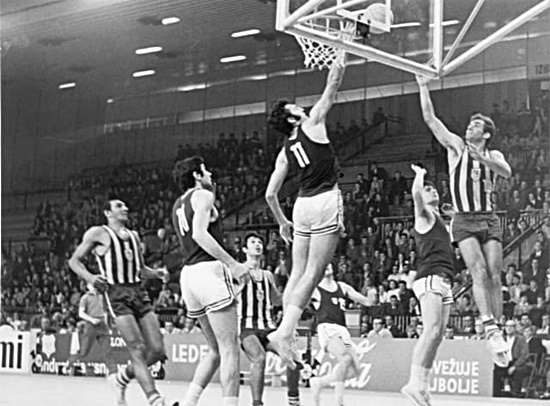
The Risen Star – Dino Meneghin of Italy
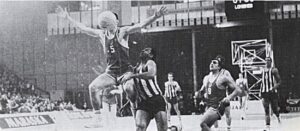
Foto from the game Brazil vs Soviet Union
Having also lost to Brazil (64-66),the Soviets had to make do with the bronze in spite of a victory over Yugoslavia (87-72), which had been cheered on by 20,000 fanatical supporters. Nevertheless, taking advantage of its successes over Brazil (80-55), Italy (66- 63) and the USA (70-63), Yugoslavia finally won a title which had not been usurped.
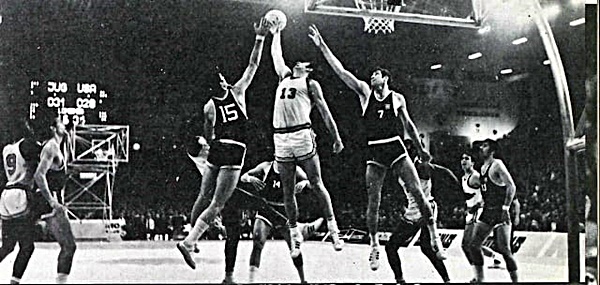
Actions from the game Yugoslavia bs USA
FINAL ROUND
Decisive Match for Yugoslavia Team
REFEREES: Erwin Kassai (HUN), David Bensusán (URU)
FOULED OUT: Simonović, Rajković / Brody, McDonald, Smith
Yugoslavia – USA 70-63 (35-32)
Yugoslavia (coach: Ranko Žeravica)
Tvrdić (4), Plećaš (12), Šolman (4), Ćosić (15), Skansi (14); Simonović (7),
Jelovac (-), Rajković (6), Kapičić (2), Daneu (-), Čermak (6)
USA (coach: Hal Fischer)
Washington (15), Silliman (16), Smith (2), Hillman (12), Williams (2); Brody
(2), Wolf (2), Wilmore (-), Isaac (2), McDonald (10)
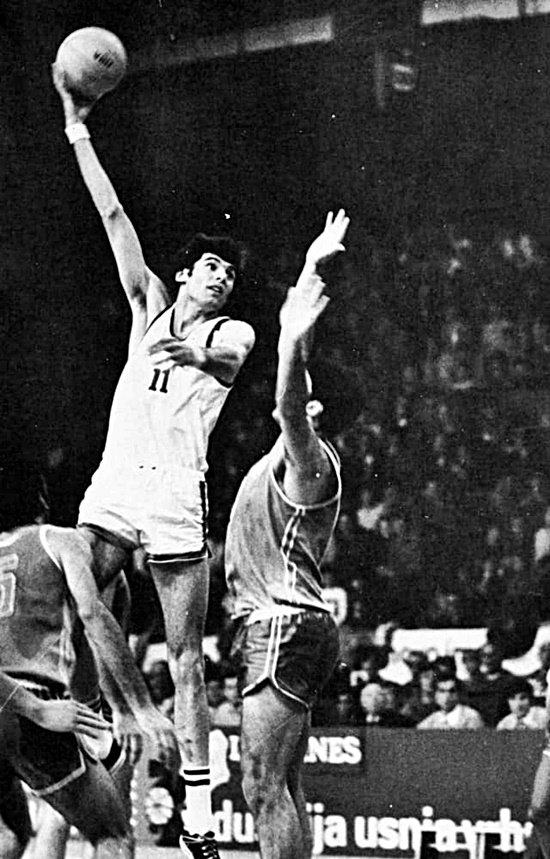
Cresimir Cosic` of Yugoslavia
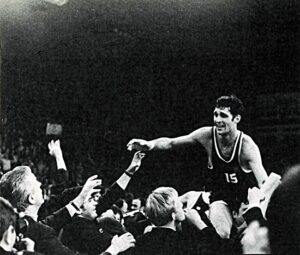
Petar Skanski of Yugoslavia
MEDALS:
1 – YUGOSLAVIA: Ratomir Tvrdić, Ljubodrag Simonović, Vinko Jelovac, Trajko Rajković, Aljoša Žorga, Dragan Kapičić, Ivo Daneu, Krešimir Ćosić, Damir Šolman, Nikola Plećaš, Dragutin Čermak, and Petar Skansi. Head coach: Ranko Žeravica.
2 – BRAZIL: (coach: Togo Renan Soares “Kanela”)
Ubiratan , Sérgio Macarrão, Hélio Rubens , Rosa Branca, Joi , Menon, Edvar Simões, Mosquito
3 – SOVIET UNION: (coach: Aleksandr Gomel’skij)
Krikun, Paulauskas, Sakandelidze, Zharmukhamedov, Zastukhov, Sergey
Belov, Tomson, Kovalenko, Lipso, Aleksander Belov, Andreev
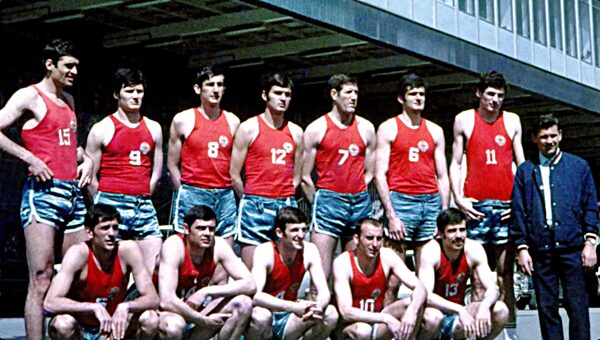
Yugoslavia – 1st Title
MVP – Sergey Belov (USSR)
Top 3 Scorers:
Shin Dong-Pa (South Korea) 32.6
Omar Arrestia (Uruguay) 19.7
Pedro Rivas (Panama) 18.8
All-Tournament Team
Krešimir Ćosić (Yugoslavia)
Sergei Belov – (MVP) (Soviet Union)
Modestas Paulauskas (Soviet Union)
Ubiratan Pereira Maciel (Brazil)
Kenny Washington (U.S.)
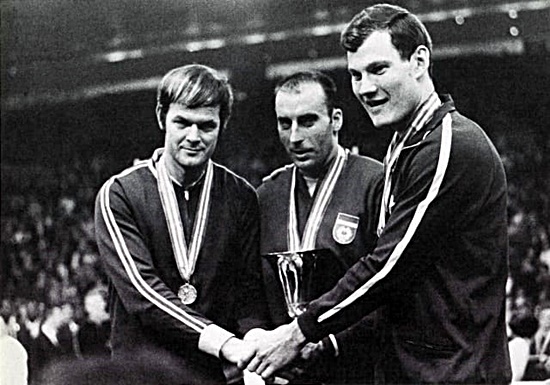
Marques Wlamir (BRA), Ivo Daneo (YUG) and Modestas Paulauskas (URS)
7th FIBA World Championships
1974 SAN JUAN, CAGUAS, PONCE, PUERTO RICO
1. Soviet Union
2. Yugoslavia
3. United States of America
July 3-14
This 7th World Championship had something of the exotic about it, being held in the Greater Antilles.
Fourteen teams were present in Puerto Rico. Yugoslavia, holder of the title won four years previously in Ljubljana, and Puerto Rico, as host country, were automatically qualified for the Final Round.
The other teams were divided into three groups for the Preliminary Round at the end of which the USSR, the USA, Cuba, Brazil, Spain and Canada joined the Yugoslavs and Puerto Ricans.
Once more represented by a university selection which was not the best despite the presence of the excellent pair John Lucas and Tom Boswell, the USA conceded defeat to the Soviets (94-105) who then went on to win
back the gold they had earned in Montevideo but lost later in Ljubljana.
The Americans had to content themselves with the bronze, the silver medal going to the Yugoslavs who, although beaten by the United States, came out on top in terms of goal average.
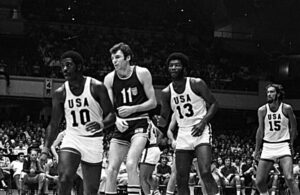
Photo from the game USA vs Yugoslavia
FINAL DECISIVE MATCH:
Soviet Union – USA 105-94 (55-55)
Coliseo “Roberto Clemente” (San Juan), 14-07-1974.
Attendance: 12.000.
Referees: Aldo Albanesi (ITA), Isaac Grinman (BRA).
Incidents: This game of the Final League Stage decided the winner of the tournament.
Soviet Union (coach: Vladimir Kondrashin)
Yurij Pavlov (6), Modestas Paulauskas (11), Valerij Miloserdov (6), Aleksandr Sal’nikov (38), Aleksandr Boloshev (9), Ivan Edeshko (4), Sergej Belov (10), Priit Tomson (-), Aleksandr Bol’shakov (-), Aleksandr Kharchenkov (2), Aleksandr Belov (16), Vladimir Zhigilij (3)
USA: (coach: Gene Bartow)
John Lucas (18), Luther Burden (22), Steve Grote (2), Frank Oleynick (-), Eugene Short (6), Rick Schmidt (-), Quinn Buckner (7), Gus Gerard (16), Joe Meriweather (7), Tom Boswell (8), Myron Wilkins (-), Rich Kelley (8)
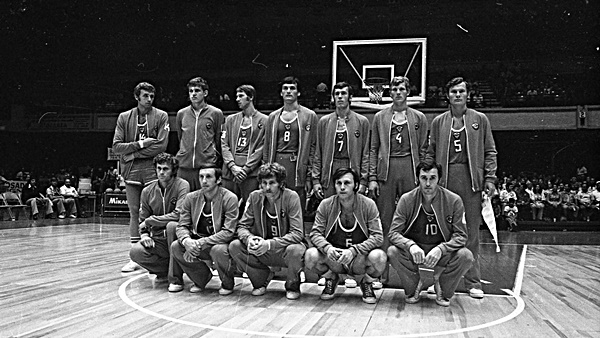 Soviet Union Team – World Champions
Soviet Union Team – World Champions
MEDALS:
Soviet Union: (coach: Vladimir Kondrashin)
Yurij Pavlov, Modestas Paulauskas, Valerij Miloserdov, Aleksandr Sal’nikov , Aleksandr Boloshev, Ivan Edeshko, Sergej Belov, Priit Tomson, Aleksandr Bol’shakov, Aleksandr Kharchenkov, Aleksandr Belov, Vladimir Zhigilij
Yugoslavia:(coach: Mirko Novosel)
Ratomir Tvrdić, Dragan Kićanović, Vinko Jelovac, Žarko Knežević, Željko Jerkov, Dragan Kapičić, Zoran Slavnić, Krešimir Ćosić, Damir Šolman, Nikola Plećaš, Dražen Dalipagić, Milun Marović
USA (coach: Gene Bartow)
John Lucas, Luther Burden, Steve Grote, Frank Oleynick, Eugene Short, Rick Schmidt, Quinn Buckner, Gus Gerard, Joe Meriweather, Tom Boswell, Myron Wilkins, Rich Kelley.
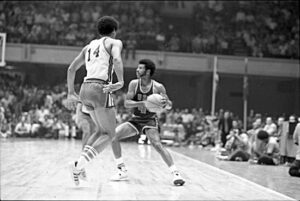
John Lucas of USA team in action
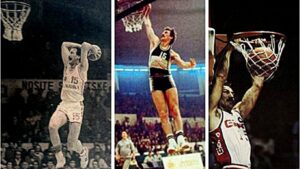
Yugoslavian Drazen Dalibagic`
The All Stars of this tournament were the Russians, Alexander Salnikov and Alexander Belov, the Yugoslav, Vinko Jelova , the Spaniard, Wayne Brabender, and the Cuban, Alejandro Urgelles.
MVP: Dragan Kicanovic` (Yugoslavia)
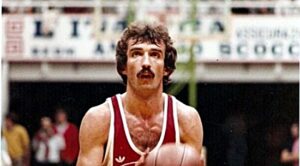
Top 3 Scorers:
Arturo Guerrero (Mexico) 27.0
Manuel Raga (Mexico) 26.1
Eddie Palubinskas (Australia) 24.8
Discover more from Sports Vision +
Subscribe to get the latest posts sent to your email.


